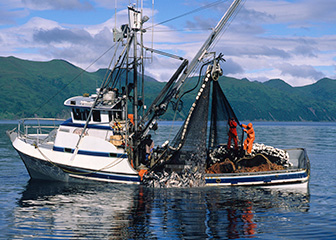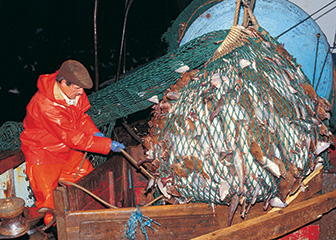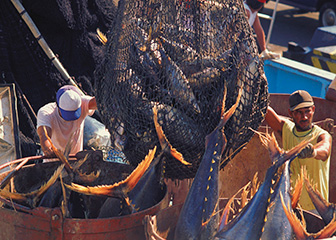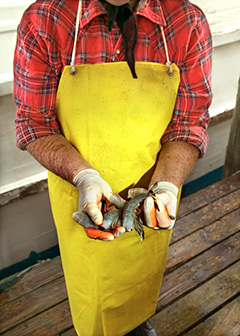How to Become a Fisher or Related Fishing Worker About this section

Fishers and related fishing workers usually acquire their occupational skills on the job.
Fishers and related fishing workers usually learn on the job. No formal education is required.
Training
Most fishers learn on the job. They start by finding work through family or friends, or simply by walking around the docks and asking for employment. Some larger trawlers and processing ships are run by larger companies, in which new workers can apply through the companies’ human resources department. Operators of large commercial fishing vessels must complete a Coast Guard-approved training course.
Education
Formal education is not required to be a fisher. However, by enrolling in 2-year vocational-technical programs offered by some high schools, fishers can improve their chances of getting a job. In addition, some community colleges and universities offer fishery technology and related programs that include courses in seamanship, vessel operations, marine safety, navigation, vessel repair, and fishing gear technology. Secondary and postsecondary programs are typically near coastal areas and include hands-on experience.
Experienced fishers may find short-term workshops especially useful. These workshops generally are offered through postsecondary institutions and provide a good working knowledge of electronic equipment used in navigation and communication.
Important Qualities
Analytical skills. Fishers and related fishing workers must measure the quality of their catch, which requires precision and accuracy.
Critical-thinking skills. Fishers and related fishing workers reach conclusions through sound reasoning and judgment. They determine how to improve the catch and must react appropriately to weather conditions.
Listening skills. Fishers and related fishing workers need to work well with others—they take instructions from captains and others—so effective listening is critical.
Machine operation skills. Fishers and related fishing workers must be able to operate complex fishing machinery competently and occasionally do routine maintenance.
Physical fitness. Fishers and related fishing workers must have hand dexterity, physical strength, and coordination to perform difficult tasks repeatedly.
Physical stamina. Fishers and related fishing workers must be able to work long hours, often in strenuous conditions.
Licenses
Captains of fishing boats must be licensed.
Crewmembers on certain fish-processing vessels may need a merchant mariner’s document. The U.S. Coast Guard issues these documents and licenses to people who meet the specific health, physical, and academic requirements.
States set licensing requirements for boats operating in state waters, defined as inland waters and waters within 3 miles of the coast.
Fishers need a permit to fish in almost any water. Permits are distributed by states for state waters and by regional fishing councils for federal waters. The permits specify the fishing season, the type and amount of fish that may be caught, as well as sometimes the type of permissible fishing gear.
Advancement
Experienced, reliable fishing boat deckhands can become boatswains, then second mates, first mates, and, finally, captains. Those who are interested in ship engineering may get experience with maintaining and repairing ship engines to become licensed chief engineers on large commercial boats. That requires meeting the Coast Guard's licensing requirements. For more information, see the profile for water transportation occupations.
Almost all captains are self-employed, and most eventually own, or partially own, one or more fishing boats.






